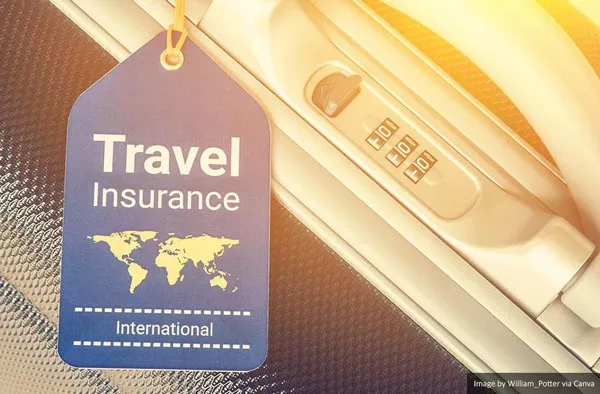Traveling abroad can be an exhilarating experience, filled with new cultures, breathtaking landscapes, and unforgettable adventures. However, unexpected events can occur, particularly health-related issues, which is where travel insurance becomes essential. One key aspect of travel insurance is hospital benefits. This article will provide an in-depth analysis of hospital benefits within travel insurance, covering their importance, what they typically include, how to choose the right coverage, and real-life scenarios that highlight their necessity.
What Is Travel Insurance?
Definition
Travel insurance is a protective measure that covers various unforeseen events that may occur during a trip. This includes medical emergencies, trip cancellations, lost luggage, and more. Among the various types of coverage offered, hospital benefits play a crucial role in safeguarding travelers’ health and finances.
Why Is Travel Insurance Important?
Travel insurance provides peace of mind, allowing travelers to focus on enjoying their journey without worrying about the financial burden of unexpected medical expenses. Particularly when traveling internationally, healthcare costs can be exorbitantly high, making travel insurance not just a good idea but a necessity.
What Are Hospital Benefits?
Definition of Hospital Benefits
Hospital benefits in travel insurance refer to the coverage that pays for medical expenses incurred during hospitalization due to an illness or injury sustained while traveling. This can include a wide range of services and facilities.
Importance of Hospital Benefits
Hospital benefits are essential for the following reasons:
High Medical Costs: Medical care can be significantly more expensive in some countries than in your home country. Hospital benefits help mitigate these costs.
Access to Quality Care: In emergencies, having insurance can ensure you receive immediate and appropriate medical care.
Peace of Mind: Knowing that you have coverage for medical emergencies allows you to travel with confidence.
See also: The Ultimate Guide to the Best Travel Insurance for Skiing
What Do Hospital Benefits Typically Cover?
1. Emergency Medical Expenses
Emergency medical expenses are often the primary component of hospital benefits. This includes:
Inpatient Care: Costs associated with being admitted to a hospital, including room charges, meals, and nursing care.
Outpatient Services: Fees for treatments that do not require overnight hospitalization, such as consultations or minor procedures.
Medications: Costs for prescription drugs administered during your hospital stay.
2. Medical Evacuation
Medical evacuation benefits cover the costs associated with transporting you to a medical facility, which can be critical in rural or remote areas where immediate care is not available. This can include:
Air Ambulance: Emergency air transport to a hospital.
Ground Transportation: Ambulance services to transfer you from one facility to another.
3. Repatriation of Remains
In the unfortunate event of a traveler’s death abroad, hospital benefits often include coverage for the return of remains to the home country. This can involve significant costs and arrangements that are difficult for families to manage during a difficult time.
4. Daily Hospital Cash Allowance
Some policies offer a daily cash allowance for each day you are hospitalized. This can help cover additional expenses, such as accommodation for family members or other incidental costs.
5. Follow-up Treatments
Hospital benefits may also extend to cover follow-up treatments required after an initial hospitalization, ensuring comprehensive care for the traveler.
Exclusions in Hospital Benefits
While hospital benefits provide extensive coverage, there are common exclusions travelers should be aware of:
1. Pre-existing Conditions
Most travel insurance policies do not cover expenses related to pre-existing medical conditions unless specifically stated. This means if you have an ongoing health issue, it’s essential to read the policy carefully.
2. Non-emergency Treatments
Hospital benefits typically do not cover non-emergency treatments or elective procedures, such as cosmetic surgery or dental work.
3. High-risk Activities
If you engage in high-risk activities, such as extreme sports or adventure travel, injuries resulting from these activities may not be covered.
4. Alcohol or Drug-related Incidents
Injuries sustained while under the influence of alcohol or drugs may also be excluded from coverage.
Choosing the Right Hospital Benefits Coverage
1. Assess Your Needs
Before purchasing travel insurance, assess your individual health needs, activities planned, and destinations. Consider factors such as:
Your health history
Planned activities (e.g., skiing, hiking)
Destinations with limited medical facilities
2. Compare Policies
Use comparison tools to evaluate different travel insurance policies. Pay close attention to the specifics of hospital benefits, including coverage limits, exclusions, and the claims process.
3. Look for Comprehensive Coverage
Opt for policies that offer comprehensive hospital benefits, including emergency medical expenses, medical evacuation, and repatriation of remains.
4. Check Provider Networks
If you have specific healthcare needs, check whether the insurance provider has partnerships with healthcare facilities in your travel destinations. This can simplify access to care.
5. Understand the Claims Process
Familiarize yourself with the claims process for your chosen insurance. Knowing how to file a claim and what documentation is required can save you time and stress in an emergency.
Real-Life Scenarios Highlighting Hospital Benefits
Scenario 1: Skiing Accident in the Alps
Imagine you are skiing in the Swiss Alps when you suffer a serious injury and need immediate medical attention. Your hospital benefits would cover:
The cost of emergency medical treatment.
Possible air ambulance services to a specialized facility.
Hospital accommodation and necessary follow-up care.
Scenario 2: Sudden Illness Abroad
While traveling in Thailand, you develop a severe case of food poisoning. Hospital benefits will cover:
Costs associated with your hospital stay.
Any prescribed medications.
Transportation to the nearest medical facility.
Scenario 3: Death Abroad
In the unfortunate event of a traveler passing away while abroad, hospital benefits covering repatriation of remains would alleviate the financial burden on the family, ensuring that the deceased is returned to their home country.
Filing a Claim for Hospital Benefits
Step 1: Contact Your Insurer
In the event of a medical emergency, the first step is to contact your insurance provider, as they may have specific protocols to follow.
Step 2: Gather Documentation
Collect all necessary documentation, including:
Medical reports from the hospital.
Receipts for any medical expenses incurred.
Any correspondence with medical professionals.
Step 3: Submit Your Claim
Follow your insurer’s guidelines for submitting a claim, providing all required documentation and details of the incident.
Step 4: Follow Up
Keep track of your claim status and follow up if you do not receive a response within the expected timeframe.
Conclusion
Hospital benefits in travel insurance are a vital component for anyone planning to travel abroad. Understanding what these benefits include, how to choose the right coverage, and knowing the claims process can significantly enhance your travel experience. While travel can be unpredictable, having comprehensive hospital benefits ensures you are prepared for any medical emergencies that may arise. By investing in the right travel insurance, you can travel with confidence, knowing that your health and financial security are well protected.





















